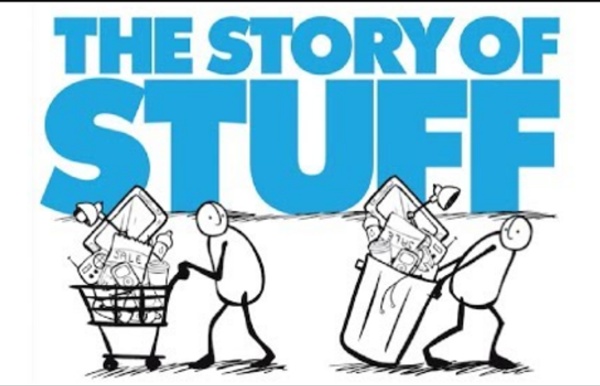



http://www.youtube.com/watch?v=9GorqroigqM
Related: Food (in)security, consumption, health & sustainability • Bra fakta om klimatet • Cultura y AmbienteThe biggest cause of global warming that nobody’s talking about LAST UPDATED: 21 August 2015 Even if Prime Minister Tony Abbott hasn’t come around to the idea yet, most of us would agree that if we want planet Earth to sustain life for generations to come, we need cleaner energy. We need cleaner energy to fuel our cars, our homes, our cities… If advances in green tech can overcome these challenges, we will have solved a big piece of the climate puzzle. But not all the big pieces… What about the energy we use to fuel our bodies? The Electronic Goldmine International Customers We welcome orders from all over the world. For all foreign orders, we accept American Express, Visa, MasterCard and Money Orders drawn on U.S. banks in U.S. funds only (personal or company checks are not accepted).
The fertile fringe THERESE Schreurs’ celery farm is about to be buried under concrete and bitumen — and she couldn’t be happier. Two of her family’s properties at Clyde, near Cranbourne, are among some of Melbourne’s key market gardens rezoned in 2010 for the city’s newest south-eastern suburb. Casey Council resisted the move, arguing that the sandy loam soils that produce much of Melburnians’ daily greens should be set aside for growing food, not houses. Frequently Asked Questions - FOOD INGREDIENTS Click here to view our most current ingredient information: Vegetarian Journal's Guide to Food Ingredients, now online in its entirety Our Guide to Food Ingredients is very helpful in deciphering ingredient labels. Many of the following answers were provided by research gathered for the guide. The Guide to Food Ingredients lists the uses, sources, and definitions of 200 common food ingredients. The guide also states whether the ingredient is vegan, typically vegan, vegetarian, typically vegetarian, typically non-vegetarian, or non-vegetarian.
Gina Rinehart moves into milk WITH construction of her massive Roy Hill iron ore mine past the halfway mark, Gina Rinehart has turned her attention towards another highly lucrative commodity: milk. MS Rinehart's Hope Dairies is looking to spend around $500 million on 5,000 hectares of Queensland farmland to create what's tipped to be one of the country's biggest dairy farms. The plan is to produce baby formula and UHT milk to meet rising demand for dairy products in China. Once up and running, the farm is expected to produce an estimated 30,000 tonnes of infant formula a year, all of it for Chinese consumption. "Gina Rinehart has had a lifelong association with the agriculture industry and she has teamed up with a great deal of expertise in Queensland to build another export industry with huge potential for Australia," a spokesman for Ms Rinehart said.
Jevons paradox Jevons paradox (also known as the rebound effect) is the observation that greater energy efficiency, while in the short-run producing energy savings, may in the long-run result in higher energy use. It was first noted by the British economist W. Stanley Jevons, in his book The Coal Question published in 1865, where he argued that “it is a confusion of ideas to suppose that the economical use of fuel is equivalent to diminished consumption. The very contrary is the truth." The Jevons paradox is an observation based on economic theory and long-term historical studies, and its magnitude is a matter of considerable dispute: if it is small (i.e., the expansion of fuel using activities is less than 100% of the improvement in efficiency) then energy efficiency improvements will lead to lower energy consumption, if it is large (i.e., the expansion of fuel using activities is greater than 100% of the improvement in efficiency) then energy consumption will be higher. Further Reading
New Analysis Says Coal's Hit a 'Tipping Point' And No Longer Makes Financial Sense Renewable energy such as wind and solar projects are already cheaper to build than it is to continue operating 40 percent of the world's existing coal fleet, according to analysis released Tuesday. In a report outlining how the world can phase out the most polluting fuel while powering an economic recovery from the coronavirus pandemic, a group of experts said coal had reached a financial "tipping point" making it uncompetitive in most markets. The authors estimate that a third of the global coal fleet is already more costly to run than it is to build new renewable power solutions, including battery storage. That figure is set to rise to 73 percent of the fleet by 2025, said the analysis, which also found that replacing the entire coal fleet with clean energy could be done at a net saving to the global economy as soon as 2022.
Global Warming This page contains archived content and is no longer being updated. At the time of publication, it represented the best available science. The impact of increased surface temperatures is significant in itself.
Vous voulez conscientiser vos élèves à la surconsommation, au pouvoir démocratique du consommateur, aux injustices planétaires (environnement, économie, etc.)? Eh bien ce vidéo est à mes yeux une mine d'or d'explications, mais surtout d'exemples concrets. Personnellement, je l'intègre justement dans un mes des cours, en français 104 (Communication et discours). by claudialangloi2 Feb 27